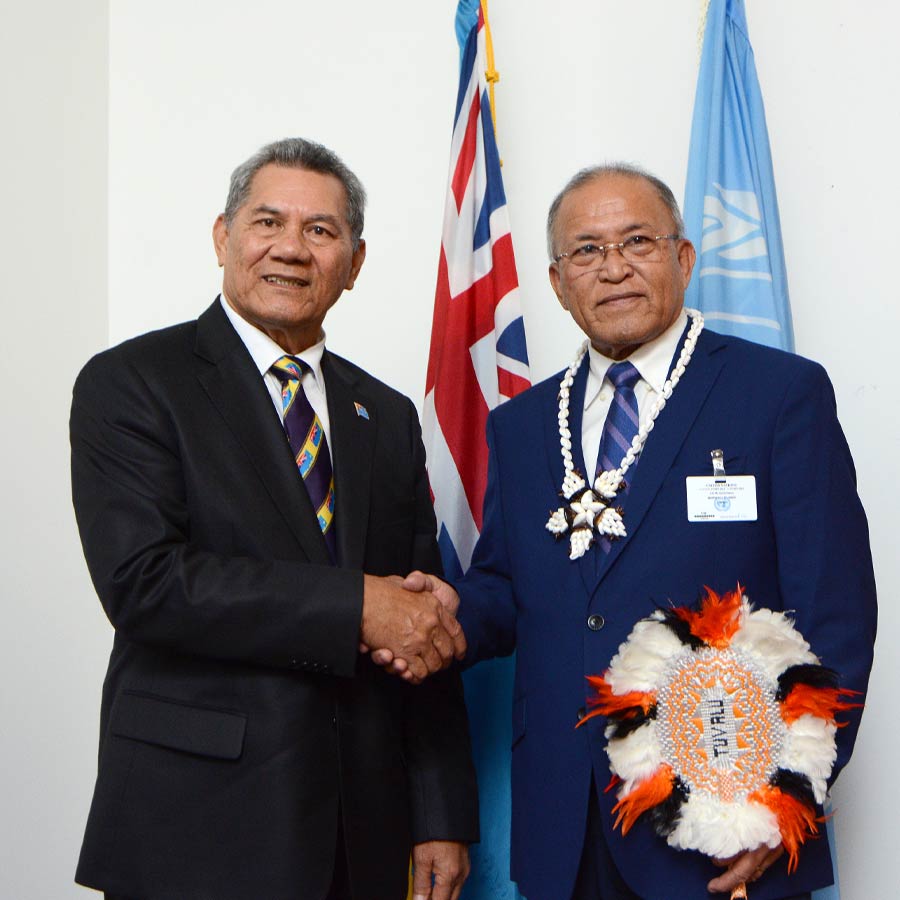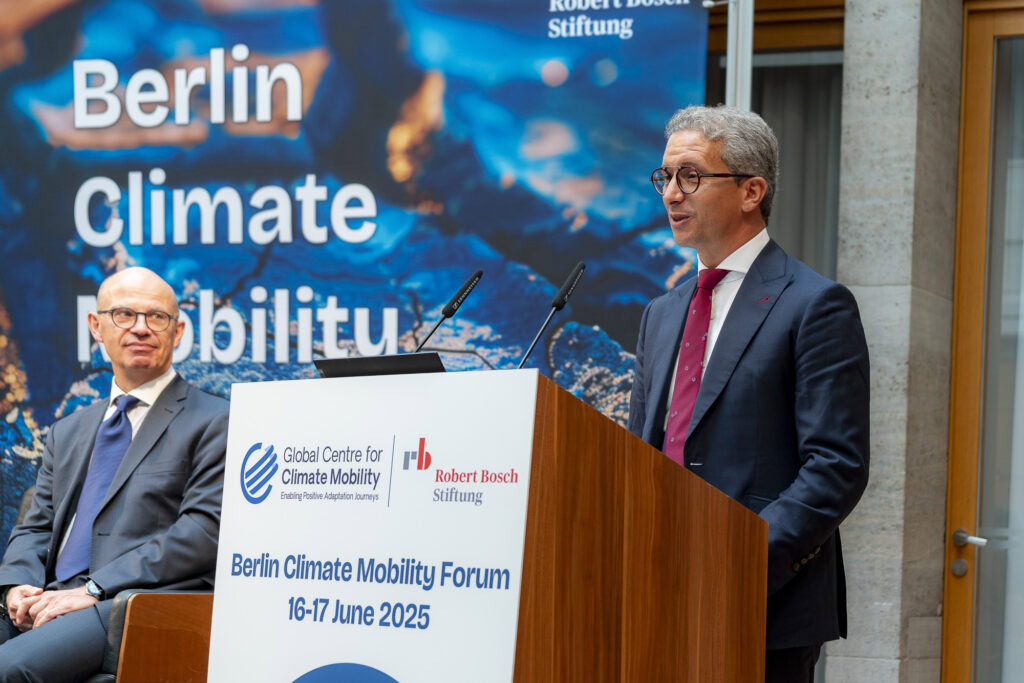Global Centre for Climate Mobility and Robert Bosch Stiftung Host First-Ever Berlin Climate Mobility Forum
24 June, Berlin, Germany — As the global climate crisis deepens, reshaping landscapes and uprooting communities, the Global Centre for Climate Mobility (GCCM), in partnership with the Robert Bosch Stiftung, hosted the inaugural Berlin Climate Mobility Forum on 16–17 June 2025.
Climate mobility is the human face of the climate crisis. By 2050, as many as 200 million could be displaced by climate impacts globally. The Forum addressed this rising challenge with urgency and resolve, aiming to strengthen international cooperation and catalyze bold, inclusive action.
“The time for half-measures is over. The Berlin Climate Mobility Forum brings the world together to act—with communities, not just for them—and to ensure climate mobility is met with courage, cooperation, and a shared sense of purpose,” said Prof. Kamal Amakrane, Managing Director of the Global Centre for Climate Mobility.
At the heart of this effort is the recognition that while climate threats are mounting, many communities want to remain where they are—anchored by identity, heritage, and connection to place. Protecting this “right to stay” requires investing in locally led adaptation, environmental stewardship, and sustainable land use, supported by international solidarity and finance.
“Philanthropy must step up—and Europe must lead. Hosting the Climate Mobility Forum in Berlin is a call for shared responsibility and bold partnerships that turn moral clarity into real change for those most affected by the climate crisis,” said Dr. Bernhard Straub, CEO of the Robert Bosch Stiftung.
To chart a path forward, the Forum convened a unique coalition of leaders and perspectives, including:
- Heads of State and Ministers from small island states and climate-affected regions, such as H.M. King Letsie III of Lesotho and H.E. Mokgweetsi Masisi, Former President of Botswana
- Senior officials of the Germany Federal Government, including Parliamentary State Secretary Rita Schwarzelühr-Sutter of the German Federal Ministry for the Environment and State Secretary Niels Annen of the German Federal Ministry for Economic Cooperation and Development (BMZ)
- Voices of civil society and philanthropy such as climate justice advocate Luisa Neubauer, and renowned civil society leader Kumi Naidoo
- Youth leaders from the Climate Mobility Fellowship programme also played a central role—bringing lived experience and forward-looking solutions from Africa, the Pacific, and Latin America and the Caribbean to German and European decision-making spaces.
Over two days, participants engaged in high-level dialogues, technical workshops, and regional consultations. Day one featured a high-level breakfast and opening session, followed by panels on climate mobility and sea-level rise. Day two focused on financing, partnerships, and community-driven responses, culminating in regional roundtables to advance actionable outcomes.
The Berlin Climate Mobility Forum serves as a springboard for transformation—sharing promising practices, informing policy, and forging partnerships that uphold rights, empower communities, and harness mobility as a tool for resilience and development.
About the Organizers:
The Global Centre for Climate Mobility
The Global Centre for Climate Mobility (GCCM) is a global entity at the intersection of climate action and human mobility, enabling positive adaptation journeys for people and communities on the frontlines of the climate crisis, upholding their adaptive capacities and “right to stay”. Hosted at the United Nations Office for Project Services, the GCCM is supported by champion countries, UN Agencies, the World Bank, regional organizations, philanthropies, civil society, and research institutions. The GCCM advances positive community transitions in climate-vulnerable regions through regional initiatives that support governments and frontline communities to anticipate, plan for, and respond to climate mobility, including the Africa Climate Mobility Initiative (launched in 2021), the Greater Caribbean Climate Mobility Initiative (2022), the Pacific Climate Mobility Initiative (2023), and the Coastal Cities Initiative (2025). The GCCM also enables the Rising Nations Initiative (RNI), which is dedicated to addressing the existential threats posed by sea-level rise. The GCCM is structured around four core Practices: the Knowledge & Policy Hub, the Solutions Lab, the Communities Climate Adaptation Facility (C-CAF), and the Climate Mobility Academy, through which the Centre delivers modeling & research, co-creates locally led solutions, informs policy, fosters partnerships, and builds capacity across the climate mobility ecosystem. It serves as the secretariat for the Coalition for Addressing Sea-Level Rise and its Existential Threats (C-SET), the Ocean Rise and Coastal Resilience Coalition, and the Climate Mobility Elders Group (C-MEG).
The Robert Bosch Stiftung GmbH
The Robert Bosch Stiftung is active in the areas of health, education, and global issues. Through its funding, the Foundation works for a just and sustainable future. It is non-profit, independent and non partisan and is rooted in the legacy of Robert Bosch. In his legacy, the entrepreneur and founder formulated the dual mission of securing the company’s future and continuing his social commitment. The Robert Bosch Stiftung GmbH maintains its own facilities, develops innovative projects, and provides support at both the international and local level.
The Foundation contributes findings from these projects to the professional world and public debate. The Foundation holds around 94 percent of the shares in Robert Bosch GmbH and is financed by dividends. The company and the Foundation are independent of each other. Since its establishment in 1964, the Robert Bosch Stiftung has contributed more than 2.5 billion euros to its charitable work.
Media Contact: Jaclyn Licht | Strategic Communications Coordinator | Global Centre for Climate Mobility | licht@climatemobility.org









